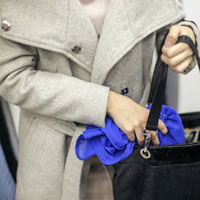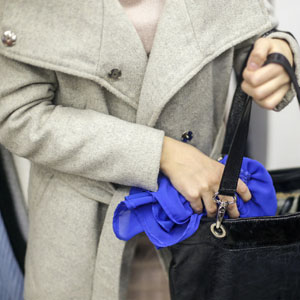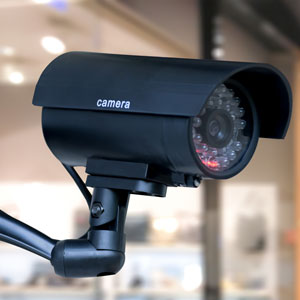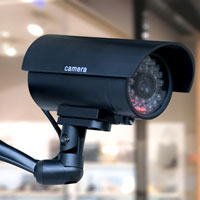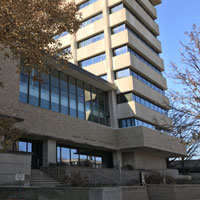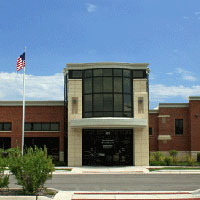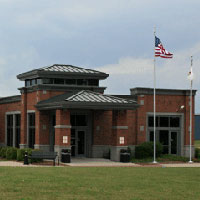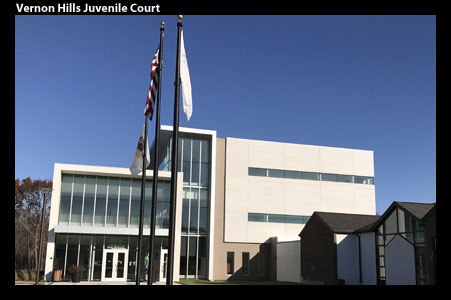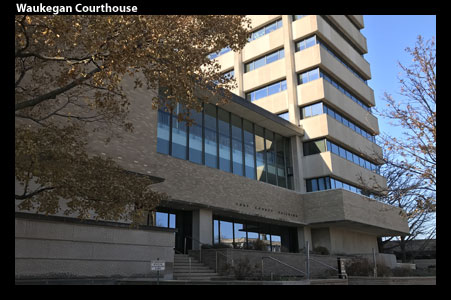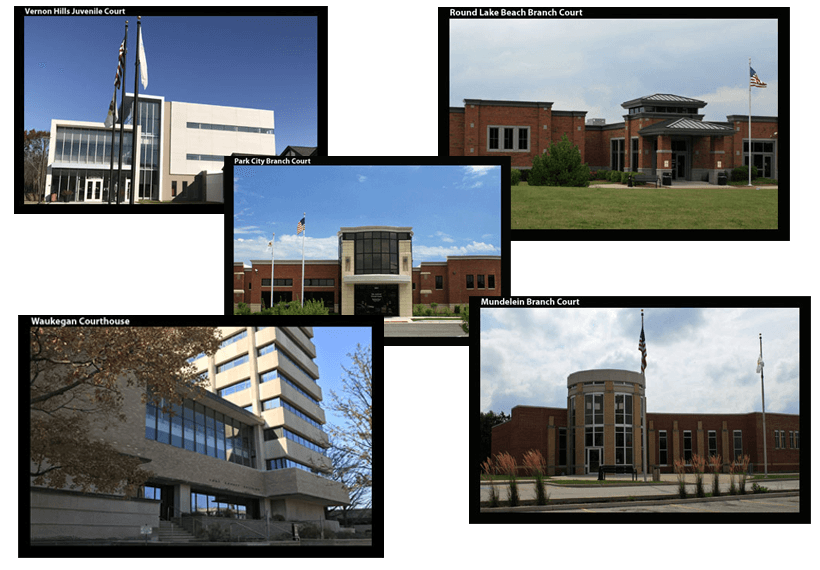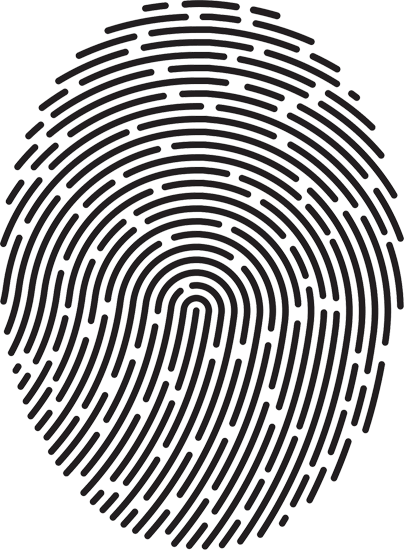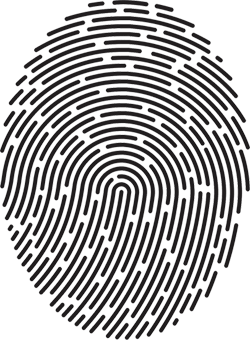
The HoffmanLaw Office defends clients charged with RETAIL THEFT in the Lake County, Illinois criminal courts. We have more than two decades of experience handling Lake County retail theft cases. Your retail theft case can be charged with varying levels of severity, depending on the value of the merchandise in question and on whether you have a criminal record. The HoffmanLaw Office defends clients against all levels of Lake County retail theft charges, including ordinance violations, misdemeanor and felony offenses.
We understand the issues in your retail theft case. We are prepared to conduct a thorough review of the charges against you and to challenge the prosecution's evidence. We know you are presumed innocent of the allegations and that you have the right to fight your charges in court.
Many different issues can arise during the defense of your retail theft case. Each of these issues can add to reasonable doubt that you committed the offense as charged.
What you knew about and what you intended to do with the merchandise you have been accused of taking are basic facts the prosecution must prove if your case proceeds to trial.
The HoffmanLaw Office knows how to question these facts and how to build a strong defense case to counteract the prosecution's accusations. We are committed to providing you a strong defense in Lake County criminal court.
We defend clients charged with retail theft in all the Lake County courthouses, including those in Waukegan, Mundelein, Round Lake Beach and Park City, as well as at the juvenile delinquency courthouse in Vernon Hills.
Building a Creative and Effective Legal Defense to Your Lake County Illinois Retail Theft Charges
Building a Creative and Effective Legal Defense to Your Lake County Illinois Retail Theft Charges
Retail Theft Requires Proof of Criminal Intent
Retail Theft Requires Proof of Criminal Intent
Your Lake County, Illinois retail theft charge most likely alleges that you knowingly took possession of store merchandise with the intention of permanently depriving the seller of the merchandise without paying its full retail value. See, 720 ILCS 5/16-25(a)(1).
There are many different circumstances in which you can be charged with retail theft.
A common circumstance involves allegedly walking past all points of purchase without paying for a store item. You may have been stopped and apprehended by store "loss prevention" personnel inside a store or possibly somewhere out in a store parking lot.
In this circumstance, the prosecution must be able to prove that you knowingly took possession of the merchandise in question and that you intended to permanently deprive the merchant of its value.
Dealing with Permissive Inferences on Concealed Merchandise
Dealing with Permissive Inferences on Concealed Merchandise
The Illinois retail theft law contains a provision that allows a judge or a jury deciding your retail theft case to infer that you had the intent to permanently deprive the seller of the value of the merchandise. This inference applies if the prosecution proves you concealed the merchandise on your person or among your belongings and then removed the merchandise past all known points of purchase without paying its full value. See, 720 ILCS 5/16-25(c).
Confronting the Potential Penalties for Retail Theft: Misdemeanors & Felonies
Confronting the Potential Penalties for Retail Theft
If your Lake County retail theft case is charged under Illinois law, and not in violation of a local ordinance, you are charged with either a misdemeanor or felony offense.
Generally, if you are charged with retail theft of property not exceeding $300 in value, you are charged with a class A misdemeanor. A class A misdemeanor is punishable by a fine of up to $2,500 and by up to 364 days in jail.
If your retail theft charge alleges theft of property valued in excess of $300, you are charged with a class 3 felony. A class 3 felony is punishable by a fine of up to $25,000 and by up to 2 to 5 years in prison.
Raising Reasonable Doubt in Your Retail Theft Case
Raising Reasonable Doubt in Your Retail Theft Case
The HoffmanLaw Office defends clients against retail theft charges in the Lake County, Illinois criminal courts. Our office has more than two decades of experience with Lake County retail theft charges.
Whether you have no criminal history or have multiple prior criminal convictions, the HoffmanLaw Office has the ability and experience necessary to intelligently defend your case.
If you are charged with a Lake County retail theft and have an upcoming court date, it is important to remember that you are presumed innocent. This presumption of innocence remains with you through all of the criminal court proceedings in your case.
You are presumed innocent unless proven guilty beyond a reasonable doubt.
As your legal advocate, your HoffmanLaw criminal defense lawyer will work hard to defend you against your retail theft accusations. We will analyze and review the prosecution's alleged evidence against you in building an effective defense.
If your case proceeds all the way through trial and we prevent the prosecution from proving any necessary part of its case beyond a reasonable doubt, you should be found not-guilty and acquitted of the charge.
It is the goal of the HoffmanLaw Office to resist the prosecution's efforts against you, raise reasonable doubt in your case, and seek the best possible criminal court outcome. We are dedicated to your defense.
As your criminal defense lawyer . . . , the HoffmanLaw Office will analyze and review the prosecution's alleged evidence against you in building an effective defense.
~Attorney Matt Hoffman, lead lawyer of the HoffmanLaw Office
Experienced Former Lake County Prosecutor Defending Other Types of Retail Theft Charges in Lake County Court
Experienced Former Lake County Prosecutor Defending Other Types of Retail Theft Charges in Lake County Court
In addition to generally punishing the taking of merchandise with the intention of permanently depriving a merchant of the value of property, the Illinois retail theft law also punishes a number of more specific actions.
These additional activities involve unlawful conduct pertaining to the acquisition of retail items under particularly-defined fraudulent circumstances.
Each of these variants of the basic charge of retail theft are class A misdemeanor offenses, punishable by up to a $2,500 fine and up to 364 days in jail, if the value of the merchandise is not more than $300.
If the value of the merchandise exceeds $300, then these offenses are class 3 felonies, punishable by up to a $25,000 fine and up to between 2 and 5 years in prison.
Brief descriptions of the different ways you can be charged with retail theft follow.
Altering or removing a price tag and attempting to purchase such merchandise at less than its full retail value. See, 720 ILCS 5/16-25(a)(2).
Transferring merchandise from the container in which such merchandise is displayed to any other container with the intention of depriving the merchant of the full retail value of such merchandise. See, 720 ILCS 5/16-25(a)(3).
Representing to a merchant that he, she, or another is the lawful owner of property, knowing that such representation is false, and conveying or attempting to convey that property to a merchant who is the owner of the property in exchange for money or merchandise credit. See, 720 ILCS 5/16-25(a)(6).
Under-ringing with the intention of depriving the merchant of the full retail value of the merchandise. See, 720 ILCS 5/16-25(a)(4).
Using a theft detection shielding device or theft detection device remover to deprive a merchant permanently of merchandise without paying the full retail value of such merchandise. Minimum class 4 felony for a second or subsequent offense. See, 720 ILCS 5/16-25(a)(7).
Attorney Defending Class 4 Felony Retail Theft Enhanced in the Waukegan Courts
Attorney Defending Class 4 Felony Retail Theft Enhanced in the Waukegan Courts
In some cases, even if you are accused of taking possession of merchandise valued at less than $300, you will be charged with a felony retail theft offense. In these cases, the charge is titled RETAIL THEFT (ENHANCED).
Even though your "enhanced" retail theft charge alleges you committed a retail theft of less than $300, which normally is a class A misdemeanor offense, you are charged with a class 4 felony. A class 4 felony is punishable by up to a $25,000 fine and by up to 1-3 years in prison.
What makes your charge "enhanced" and subject to greater penalties is your prior record of conviction.
If you have a prior conviction for robbery, armed robbery, burglary, residential burglary, possession of burglary tools, home invasion, unlawful use of a credit card, forgery, or any type of theft, you can be charged with retail theft (enhanced) when the value of the merchandise in question does not exceed $300. See, 720 ILCS 5/16-25(f)(2).
In this case, you might be accused of taking an inexpensive item but still find yourself defending a felony-level charge.
All felony Lake County retail theft charges the HoffmanLaw Office defends are assigned to the main Lake County criminal courthouse in downtown Waukegan.
HoffmanLaw Also Defends Retail Theft Ordinance Violations in the Lake County Branch Courts
HoffmanLaw Also Defends Retail Theft Ordinance Violations in the Lake County Branch Courts
There is a certain type of Lake County retail theft charge that is neither a misdemeanor nor felony offense. This type of retail theft case is charged as an ORDINANCE VIOLATION.
Lake County ordinance violation retail theft charges are issued under the authority of local municipal ordinances, as opposed to under the authority of the Illinois Criminal Code.
Although ordinance retail theft charges are assigned to Lake County court, and are adjudicated by actual judges, these charges are not strictly criminal in nature. That is, they do not allow for sentences of incarceration in jail or prison.
Ordinance violations are more appropriately referred to as "quasi criminal" in nature because they are adjudicated in criminal courtrooms and because they can be placed down on your criminal record of arrests.
They are also "quasi criminal" in nature because they are governed by the Illinois Criminal Identification Act- namely, the rules that apply to expungement of arrests in criminal cases. See, 20 ILCS 2630/0.01 et al.
If you are facing a Lake County ordinance level retail theft accusation, the HoffmanLaw Office is here to help.
We have many years of experience defending clients against Lake County retail theft ordinance violation charges in the various Lake County branch courts in Park City, Mundelein, and Round Lake Beach.
We will thoroughly examine the facts of your case from our perspective and seek to bring forth reasonable doubt.
~Attorney Matt Hoffman, lead lawyer of the HoffmanLaw Office
What is Retail Theft?
What is Retail Theft?
Knowingly Taking Possession of Merchandise Offered for Sale in a Retail Establishment
With the Intention of Depriving the Merchant Permanently
Of the Possession of Such Merchandise Without Paying its Full Retail Value

Defending Juveniles Against Retail Theft Charges at Juvenile Court in Vernon Hills
Defending Juveniles Against Retail Theft Charges at Court in Vernon Hills
The HoffmanLaw Office also defends retail theft charges at the Lake County, Illinois juvenile courthouse in Vernon Hills.  Juvenile court prosecutions are governed by penalties, rules and procedures that often differ greatly from those that apply in adult court, including those discussed on this page.
Juvenile court prosecutions are governed by penalties, rules and procedures that often differ greatly from those that apply in adult court, including those discussed on this page.
Attorney Matt Hoffman of the HoffmanLaw Office has many years' experience with Lake County juvenile delinquency proceedings and "Petitions for Adjudication of Wardship." He is a former Lake County Assistant State's Attorney who used to prosecute juvenile delinquency cases in Lake County juvenile court.
If your child is charged with retail theft in Lake County juvenile court, the HoffmanLaw Office has the specific experience necessary to work toward an intelligent and effective resolution of the case.
Lawyer Matt Hoffman is a former recipient of the Lake County, Illinois Juvenile Justice Award.
Evidentiary and Other Issues in the Criminal Defense of Lake County Retail Theft Charges
Most retail theft prosecutions are built on the statements of lay witnesses. Often, these witnesses are loss prevention personnel, who allegedly observed the acts in question while working in a store.
Some cases are based on actions these personnel allegedly observed directly. Many others are based on actions loss prevention workers allegedly observed through the assistance of store surveillance cameras.
The Prosecution's Use of Video Evidence
The Prosecution's Use of Video Evidence
In store surveillance camera retail theft cases, most of the time video images have been recorded and maintained, first by loss prevention and then, ultimately, by the police.
Just as are police reports, written witness narratives and statements, so, too, video recordings are subject to the discovery process in court.
If you are charged with retail theft, you have the right to see and review the prosecution's evidence. Such evidence often includes video surveillance footage.
Occurrence Witnesses Usually Must Appear to Testify if there is a Trial
Occurrence Witnesses Usually Must Appear to Testify if there is a Trial
As a general rule, the police are not allowed to testify to what a person other than the defendant told them about how a crime occurred.
As a result, even though in most retail theft cases the police responded to the scene of the alleged crime, gathered evidence, and made an arrest, the witness or witnesses who allegedly observed the theft will be required to appear in court and testify at trial.
Still, even though they may have spent time and effort investigating a case, possibly even in apprehending and detaining you, some lay witnesses and loss prevention personnel do not bother to appear in court.
If a necessary prosecution witness case chooses not to appear for your trial, oftentimes your attorney is able to request and achieve a dismissal of your case.
You Should be Found Not-Guilty if You Took Merchandise by Accident
You Should be Found Not-Guilty if You Took Merchandise by Accident
In most retail theft cases, in order to prove the charge, the prosecution must prove that you had the specific intent of depriving the merchant of the full value of the merchandise.
In your retail theft case, the prosecution must prove that you engaged in your predicate conduct at least knowingly.
As a result, if the evidence adduced at trial shows merely that you removed merchandise from a store without paying for it, but did not do so knowingly or did so accidentally, then you should be found not-guilty and acquitted of the charge.
The HoffmanLaw Office has a lengthy record of success in defending clients in Lake County retail theft cases and in achieving exceptional results.
~Attorney Matt Hoffman, lead lawyer of the HoffmanLaw Office
Dispositions on Misdemeanor vs. Felony Retail Theft Charges
Dispositions on Misdemeanor vs. Felony Retail Theft Charges
There are some scenarios where the charge of retail theft can be especially severe.
Misdemeanor charges of retail theft, alleging thefts valued at $300 or less, may allow for dispositions of court supervision as one way to avoid a conviction for the offense.
Felony charges of retail theft do not permit court supervision to be imposed and carry mandatory convictions as a result.
For a review of the specific penalties for misdemeanor and felony retail theft charges, see the "Confronting the Potential Penalties" section above.
A new type of disposition called "second chance probation," which does not lead to a felony conviction, may be available if you are found guilty of a class 3 felony retail theft offense. See, 730 ILCS 5/5-6-3.4. The "second chance probation" law became effective on January 1, 2014.
How a Prior Record Can Boost Your Charges
How a Prior Record Can Boost Your Charges
In a felony retail theft "enhanced" case, theoretically you could be accused of stealing a $10 item, but find yourself charged with a class 4 felony offense.
This is because at some prior time you were convicted of a theft-related offense. Even if that prior conviction was for a misdemeanor, your new $10 retail theft allegation can be charged as a class 4 felony case.
Sometimes it Makes Sense to Negotiate to Control the Outcome
Sometimes it Makes Sense to Negotiate to Control the Outcome
After a retail theft case has been charged, prosecutors have discretion in how they seek to resolve the allegations.
For instance, even though you might be charged with class 3 felony retail theft, alleging the value of the merchandise stolen was in excess of $300, that does not mean the prosecution must automatically seek a class 3 felony conviction.
Taking into consideration the facts of your case and your prior record, as well as arguments in your favor made by your criminal defense lawyer, sometimes your lawyer can convince prosecutors to exercise their discretion and to reduce a felony charge to a misdemeanor, or a misdemeanor charge to a less serious crime.
Such reductions do occur in the nature of "plea-bargaining" when "plea-bargaining" is appropriate in a case.
Put Our Experience to Work in Your Lake County Retail Theft Case
Put Our Experience to Work in Your Lake County Retail Theft Case
The HoffmanLaw Office has more than two decades of experience with Lake County retail theft charges.
We have specific experience with retail theft allegations charged in violation of local ordinances, as well as with misdemeanor and felony retail theft charges brought under Illinois state law.
The HoffmanLaw Office has a lengthy record of success in defending clients in Lake County retail theft cases and in achieving exceptional results.
 HoffmanLaw
HoffmanLaw(847) 587-5000
Why Choose HoffmanLaw to Defend Your Lake County Illinois Criminal Retail Theft Case?
Why Choose HoffmanLaw to Defend Your Lake County Illinois Criminal Retail Theft Case?

Analysis.
The HoffmanLaw Office always is focused on the presumption of innocence. Building on this presumption, the HoffmanLaw Office performs a systematic and searching ANALYSIS of the facts alleged in your retail theft case. This intensive analysis exposes weakness in the prosecution's evidence and develops powerful defense arguments and strategies.

Preparation.
The HoffmanLaw Office strives to know completely the facts and law of your retail theft case. In criminal court, good results do not emerge by chance. They come through intense PREPARATION that lays the groundwork for success. When you select the HoffmanLaw Office as your criminal defense lawyer, you team yourself with a philosophy of extreme preparation.

Results.
The HoffmanLaw Office views every time it appears in court with you as an opportunity to achieve RESULTS. Whether it is negotiating during a pretrial conference, cross-examining a witness, or delivering a closing argument at trial, the HoffmanLaw Office strives to be your best advocate at all times.
Defending Serious Retail Theft Charges in Lake County Illinois Criminal Court



